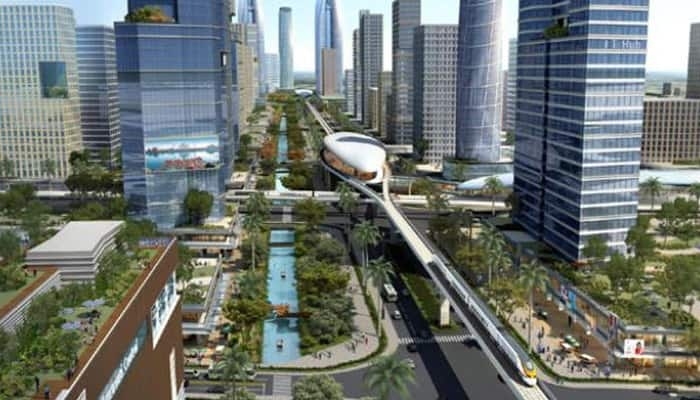Zee Media Bureau
New Delhi: Urban Development Minister M Venkaiah Naidu on Thursday announced the first list of 20 cities that will be developed to have basic infrastructure with a proposed investment of Rs 50,802 crore over the next five years.
Bhubaneswar top the list along with other cities such as Pune, Ahmedabad, Chennai and Bhopal making it to the list too. However, Mumbai failed to make it to the first list.
However, having said that, questions have been raised as to what could be the probable features of Smart City.
According to the Mission Statement and Guidelines of Smart City released by the Ministry of Urban Development, some typical features of comprehensive development in Smart Cities are described below.
- Promoting mixed land use in area-based developments — planning for ‘unplanned areas’ containing a range of compatible activities and land uses close to one another in order to make land use more efficient. The States will enable some flexibility in land use and building bye-laws to adapt to change;
- Housing and inclusiveness — expand housing opportunities for all;
- Creating walkable localities — reduce congestion, air pollution and resource depletion, boost local economy, promote interactions and ensure security. The road network is created or refurbished not only for vehicles and public transport, but also for pedestrians and cyclists, and necessary administrative services are offered within walking or cycling distance;
- Preserving and developing open spaces — parks, playgrounds, and recreational spaces in order to enhance the quality of life of citizens, reduce the urban heat effects in Areas and generally promote eco-balance;
- Promoting a variety of transport options — Transit Oriented Development (TOD), public transport and last mile para-transport connectivity;
- Making governance citizen-friendly and cost effective — increasingly rely on online services to bring about accountability and transparency, especially using mobiles to reduce cost of services and providing services without having to go to municipal offices; form e-groups to listen to people and obtain feedback and use online monitoring of programs and activities with the aid of cyber tour of worksites;
- Giving an identity to the city — based on its main economic activity, such as local cuisine, health, education, arts and craft, culture, sports goods, furniture, hosiery, textile, dairy, etc;
- Applying Smart Solutions to infrastructure and services in area-based development in order to make them better. For example, making Areas less vulnerable to disasters, using fewer resources, and providing cheaper services.
















